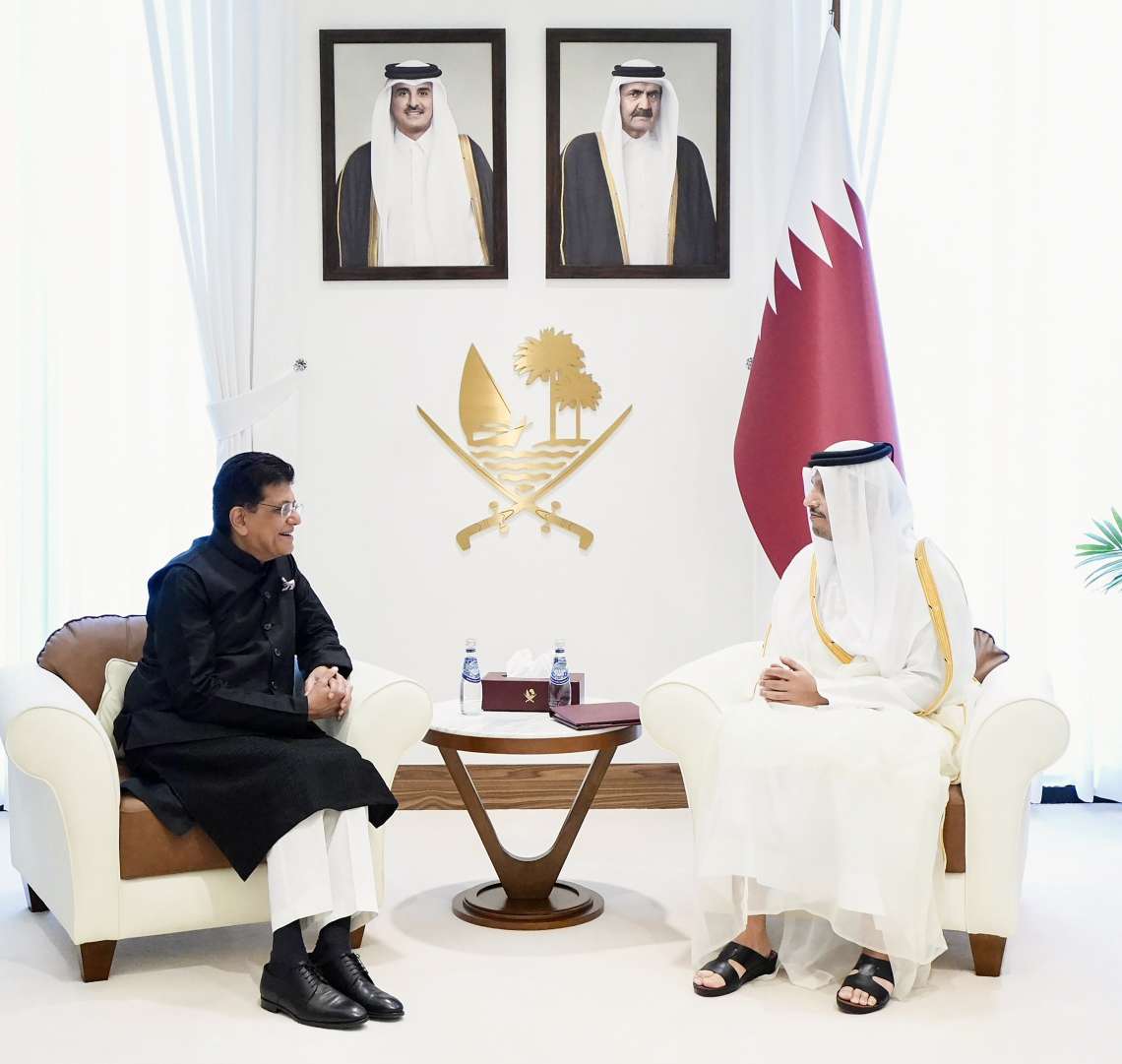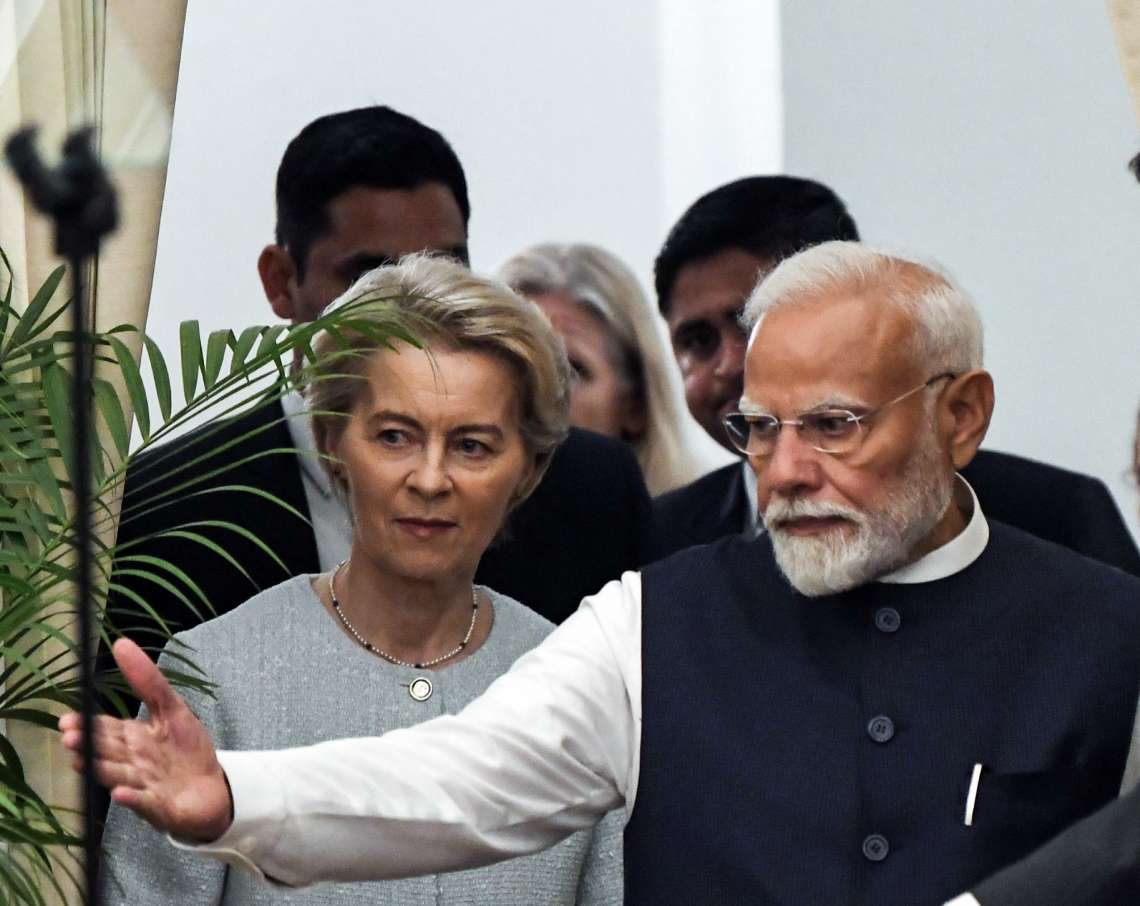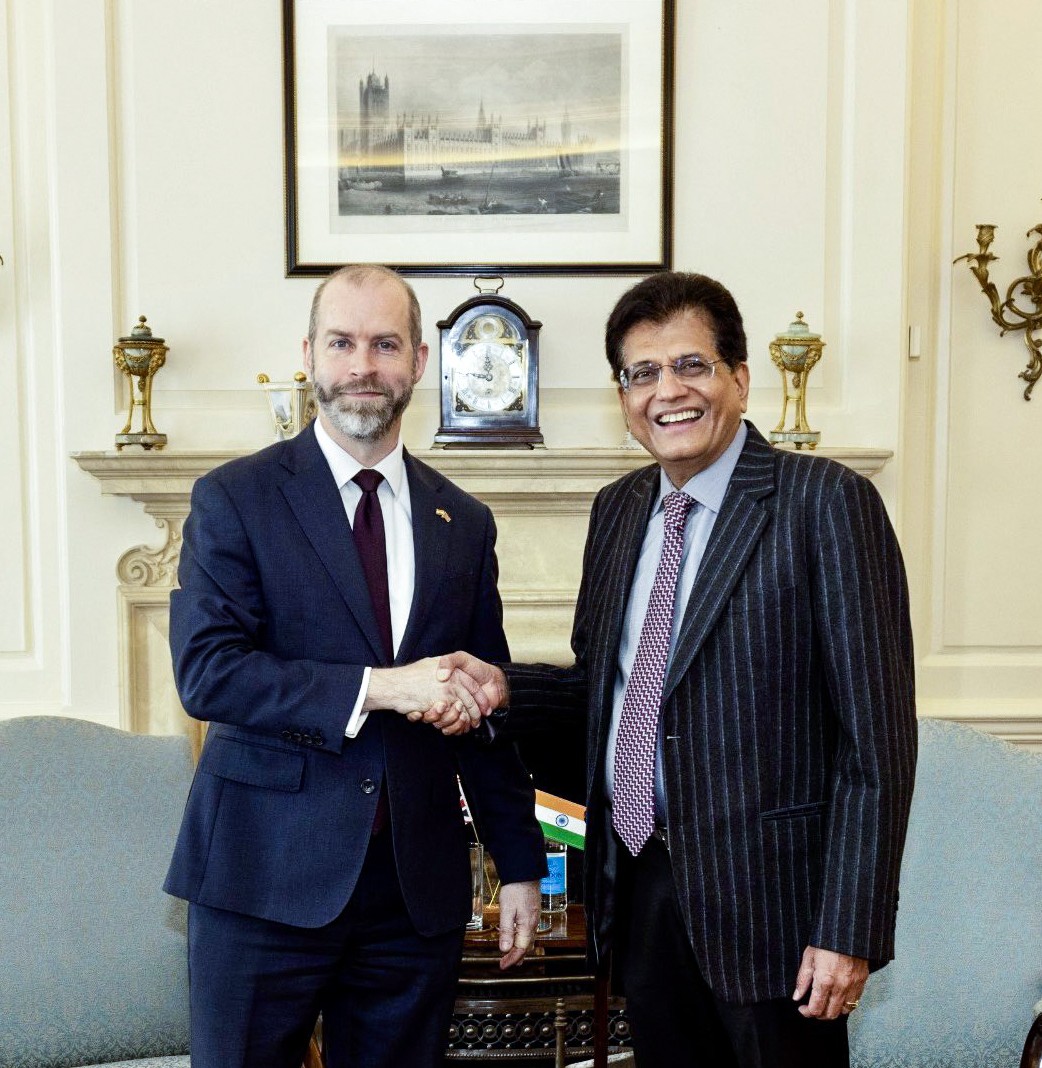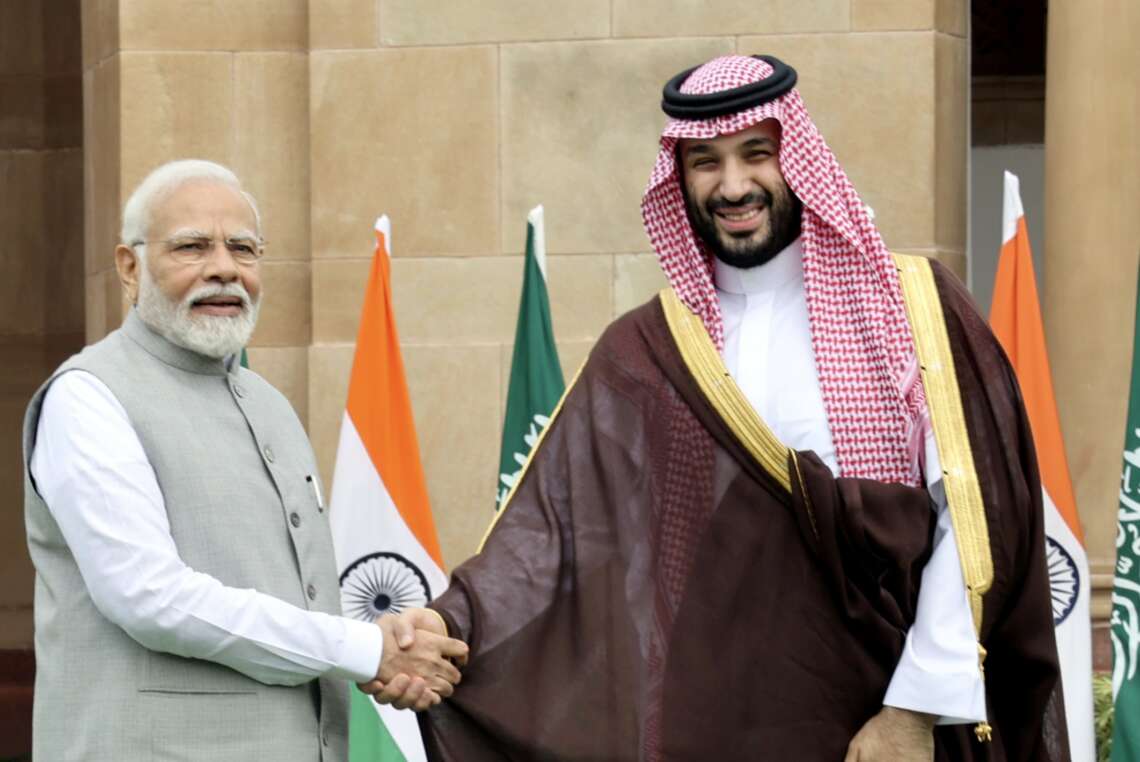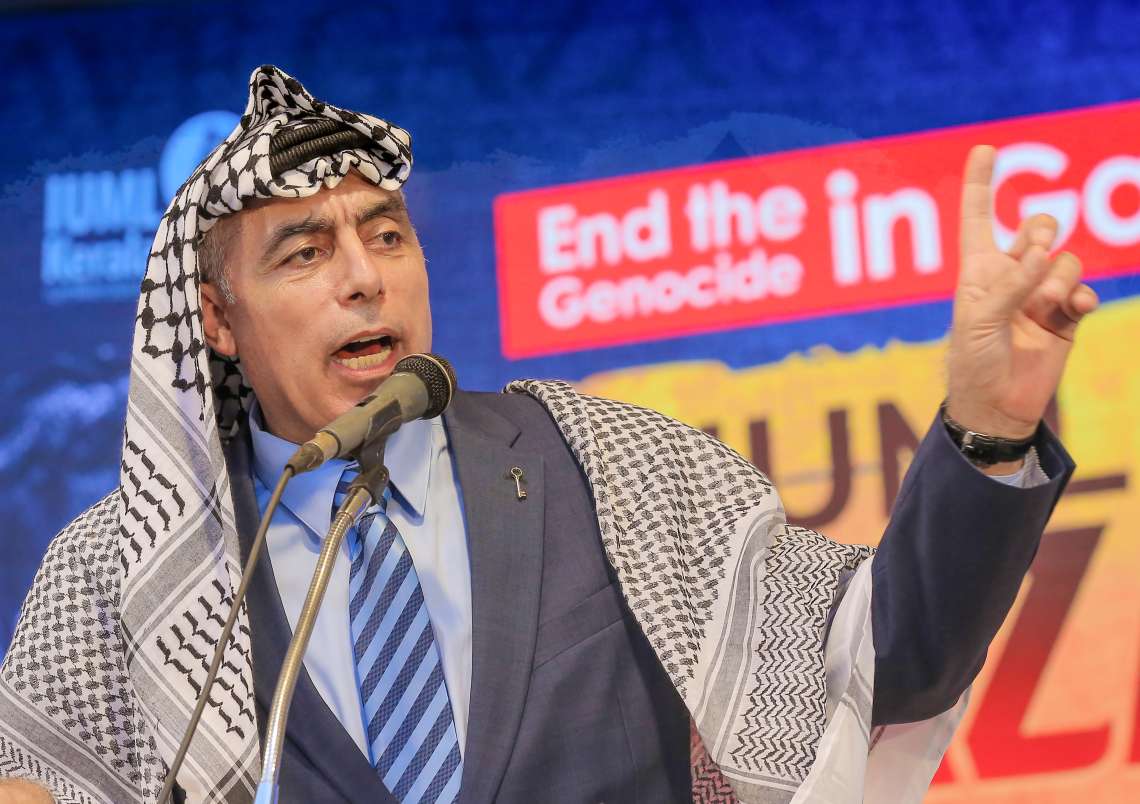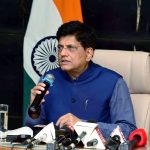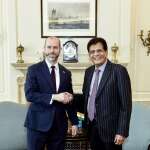India and Qatar aim to finalise a free trade agreement by mid-2026, targeting to double bilateral trade to $30 billion and expand cooperation beyond energy.
India and Qatar are preparing to launch formal negotiations for a free trade agreement (FTA), with both sides expecting to conclude the deal by the middle or third quarter of 2026. Commerce and Industry Minister Piyush Goyal, who is currently on a two-day visit to Doha, confirmed that discussions on the framework are in their final stages.
“I would think that sometime by the middle of next year, or third quarter of next year, we will be able to finalise an FTA, if not earlier,” Goyal told reporters during his visit, where he led a high-level business delegation focused on boosting bilateral trade and investment.
Qatar, one of India’s key trading partners in the Gulf Cooperation Council (GCC), recorded $14.15 billion in bilateral trade with India during 2024–25. India already has a trade pact with the United Arab Emirates and is finalising another with Oman, signalling a deeper regional economic footprint within the Gulf.
Goyal held detailed discussions with Sheikh Mohammed bin Hamad bin Qassim Al Thani, Qatar’s Minister of Commerce and Industry, to define the terms of reference for the FTA. “We have discussed that we should quickly launch FTA negotiations. We are discussing the contours, and once we finalise that, the Qatar Minister and I have agreed to fast-track it so that trade and business can double by 2030 — from $14 billion today to $30 billion,” Goyal said.
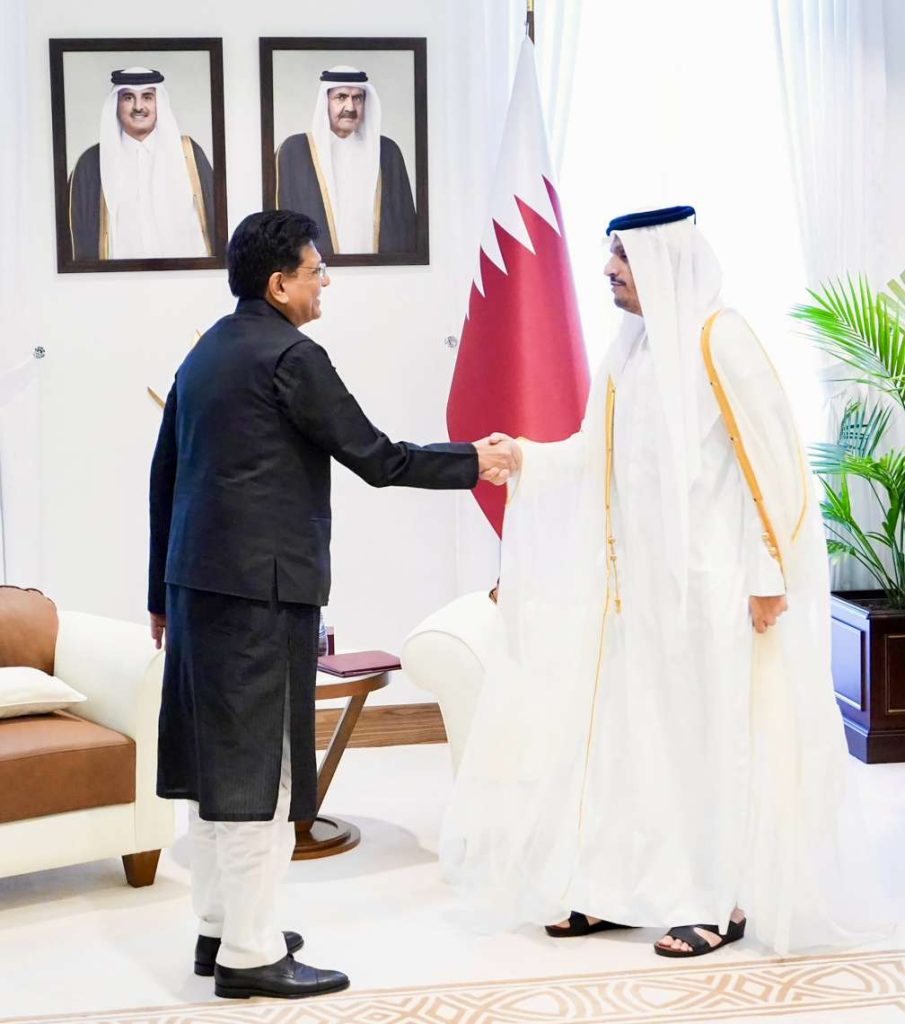
A free trade agreement would aim to reduce or eliminate import duties across most goods and liberalise the services and investment sectors, enabling smoother capital and business flows. Currently, India’s trade relationship with Qatar is dominated by energy imports, which account for nearly 90 per cent of total imports. In the last fiscal year, India imported $12.46 billion worth of goods from Qatar, while exports totalled $1.68 billion, leading to a trade deficit of $10.78 billion.
India’s major imports from Qatar include liquefied natural gas (LNG), propane, butane, fertilisers, plastics, and aluminium. In return, India exports industrial goods, rice, jewellery, automobiles, electricals, electronics, and food products such as buffalo meat and sugar.
Between April 2000 and June 2025, India has received $1.53 billion in foreign direct investment (FDI) from Qatar. Goyal also co-chaired a business roundtable with industry leaders from both countries, where he highlighted emerging opportunities in agriculture, renewable energy, AI, data centres, tourism, cosmetics, and pharmaceuticals.
“There is a lot of potential here,” Goyal said. “Qatari investors are looking for good promoters and strong projects in India, and I am confident that our industry associations like CII and FICCI will create robust opportunities in manufacturing and services — including banking, insurance, real estate, and technology.”
On Qatar’s earlier commitment to invest $10 billion in India, Goyal said that $4–5 billion has already been invested, with an additional $1–1.5 billion in the pipeline. “They are now exploring new avenues, particularly in infrastructure and technology sectors,” he added.
Analysts say that a trade pact between the two nations could not only strengthen India’s energy security but also diversify Qatar’s investment portfolio in Asia. For both, the FTA represents an opportunity to deepen economic ties beyond hydrocarbons — setting the stage for a new phase of cooperation in technology, sustainability, and innovation.


